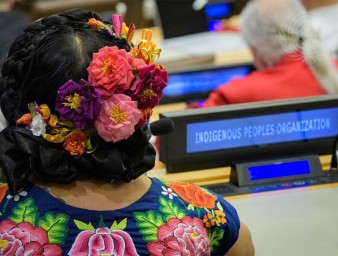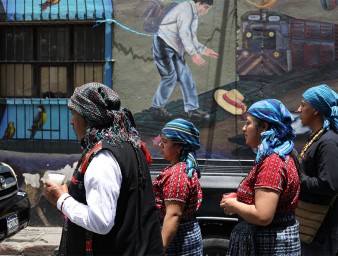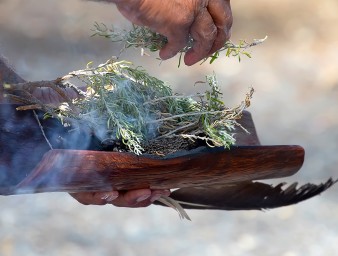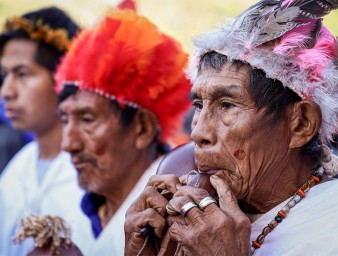Advancing the rights of Indigenous Peoples
09 August 2023
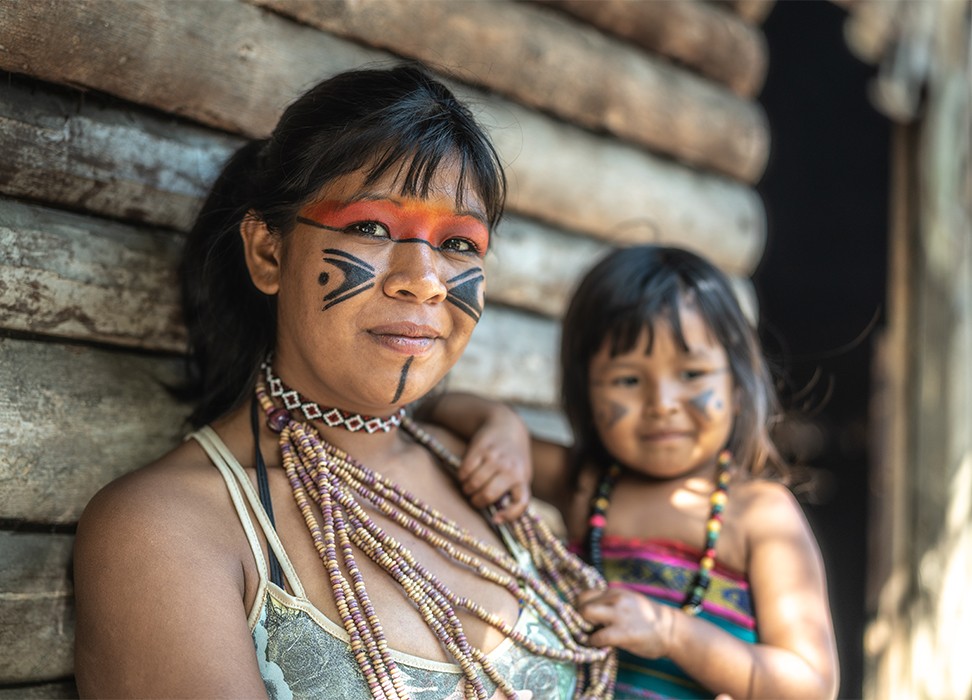
From the Amazon tropical rainforest to the deserts of the Sahel to the Artic territories of northern Canada, indigenous leaders met recently in Geneva for a human rights training program designed to help Indigenous Peoples increase their participation in all aspects of society and better protect and promote their human rights.
The 2023 Indigenous Fellowship Programme brought together 46 indigenous fellows from 30 countries, the largest cohort since the program was launched by the Office of the High Commissioner for Human Rights in 1997.
For four weeks, the indigenous fellows learned about the UN system and its mechanisms for dealing with human rights issues, particularly indigenous issues. The training was held ahead of the International Day of the World’s Indigenous Peoples on August 9, which this year celebrates the role of indigenous youths as agents of change and their pursuit of justice for their peoples.
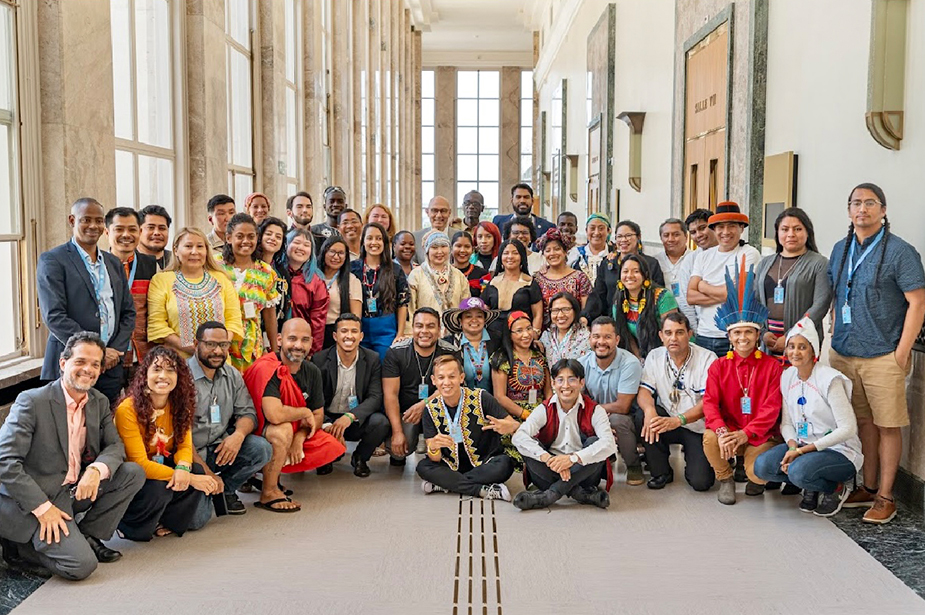
The 2023 Indigenous Fellowship Programme brought together 46 indigenous fellows from 30 countries. © OHCHR
“It really was an eye-opener,” said Ana Mariela López Gallego, a member of the Mayan Ixil indigenous community, who travelled from Nebaj, a village in the Mayan highlands of Guatemala, to participate in the training.
López Gallego works for a grassroots organization that resolves conflicts through Mayan ancestral justice and customs.
“We are so focused on our local struggles that we forget there is an international system of law that can also help our cause,” said López Gallego, whose group has been fighting in court for years against an international hydroelectric project on Ixil communal land.
“For States, indigenous communities are invisible, and our rights are ignored, but if we bring up our cases to the international forum, we can force States to change their discourse,” she said.
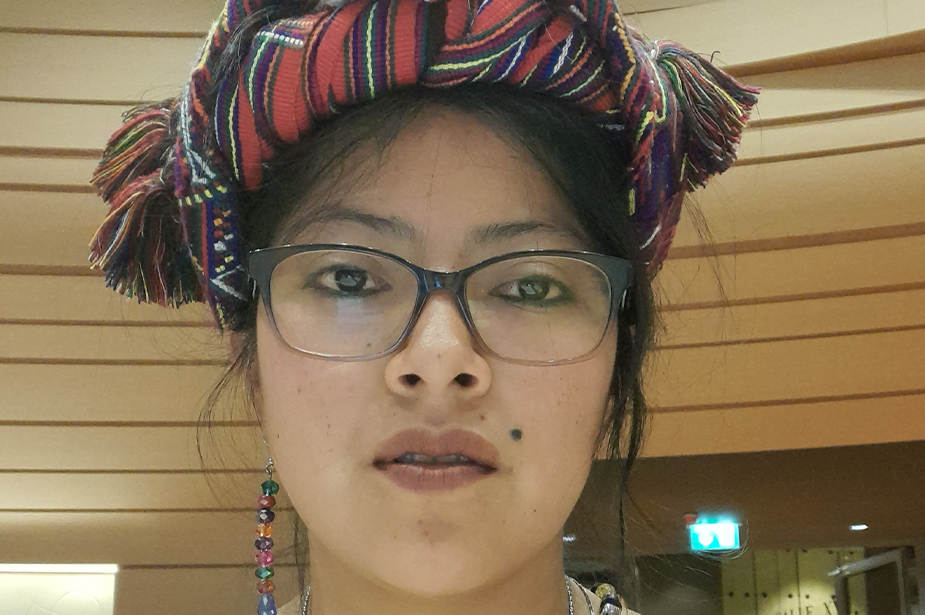
Ana Mariela López Gallego, a member of the Mayan Ixil community.
Understanding the UN mechanisms
Moussa Tall, a member of the nomadic Fulani people of Burkina Faso and a 2023 fellow, said he brought home valuable lessons from the training, and now understands how UN mechanisms work to allow Indigenous Peoples to pursue reparation and justice for violations of their rights.
“One of the things I learned is that we have the right to international recourse to defend and protect our communities and our human rights,” said Tall, who works for a local association dedicated to promoting the Fulani language and culture. Tall said the training was also an opportunity to do networking and share experiences with other fellows.
“The fact that there is an international legal framework to protect our rights is the best prevention to the use of violence,” he said.
The Fulani have traditionally lived off cattle herding across Western and Central Africa, but their traditional lifestyle is threatened by violence and climate change. Tall’s association collects documentation on human rights violations, including forced disappearances, and has developed a project to support schooling for children displaced by violence.
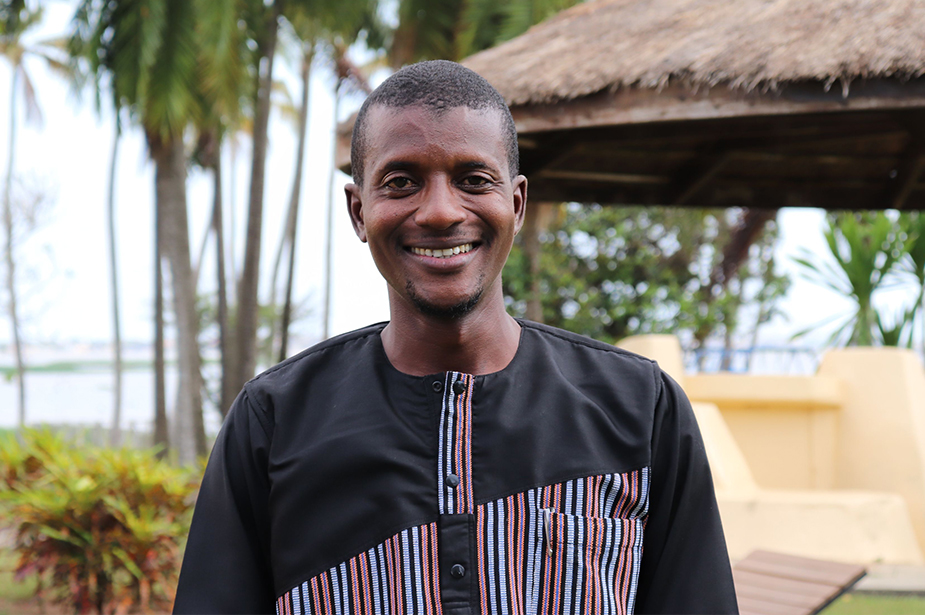
Moussa Tall, a Fulani from Burkina Faso.
“
Advancing the rights of Indigenous Peoples and protecting and amplifying their voices is an essential part of human rights work.
“
UN Human Rights Chief Volker Türk.
There are an estimated 476 million Indigenous Peoples across all regions of the world. Although they constitute about 6 percent of the world’s population, Indigenous Peoples are among the most disadvantaged and vulnerable groups of people in the world, suffering extremely high levels of discrimination, exclusion, dispossession, and exploitation.
Morse Flores, programme coordinator of the Indigenous Fellowship Programme, said the training is designed to build the capacity and expertise of Indigenous Peoples to interact with the UN system and human rights bodies. One of the highlights of this year is the launch of the Portuguese speaking programme, with the participation of 10 indigenous and Quilombola representatives from Brazil.
Among Indigenous Peoples, former fellows have been the most active in using the UN human rights mechanisms, especially the Treaty Bodies, the Universal Periodic Review and the Special Procedures, and have also benefitted from the UN Voluntary Fund for Indigenous Peoples.
“The knowledge and contribution of Indigenous Peoples have benefits beyond their communities because they are essential to tackling many of the problems the world is facing today and for designing a sustainable future for all,” Flores said.
Since the launch of the programme in 1997, more than 500 indigenous men and women from all over the world have been trained. They have since provided human rights training to many more in their communities. The Call for Applications for the 2024 Indigenous Fellowship Programme will open soon.
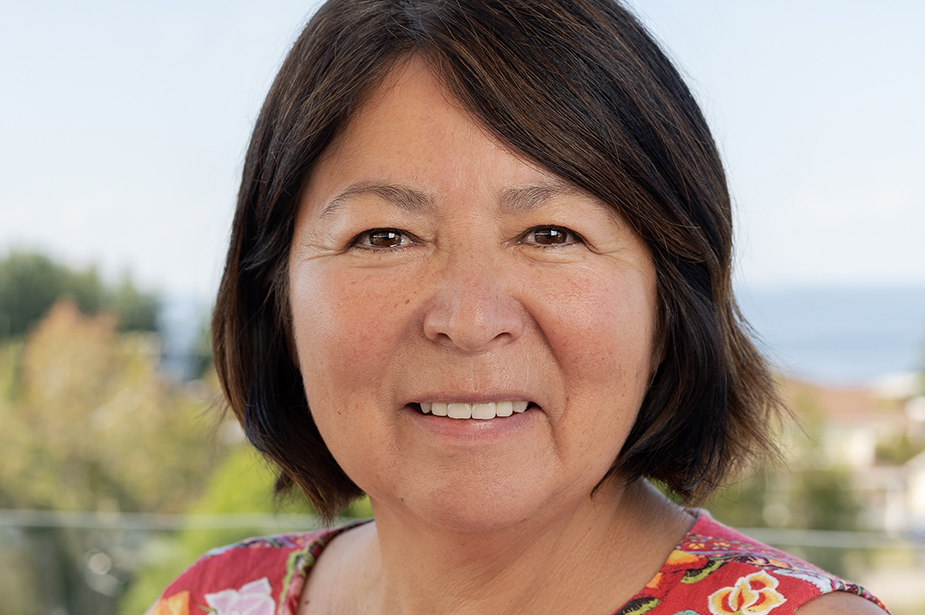
Marjolaine Étienne, a former fellow from the Innu community, is president of the Quebec Native Women, and an advisor to the UN Secretary-General.
Marjolaine Étienne, a member of the Innu community from Mashteuiatsh, north of Quebec, is a former fellow from 2017. Today Étienne is the president of the Quebec Native Women, and a member of the Board of Trustees of the UN Voluntary Fund for Indigenous Peoples.
“Our struggle as Indigenous Peoples is a local struggle, but also an international struggle,” said Étienne, who added she still draws knowledge every day from the lessons she learned at the training.
“Regardless of what part of the world we come from, Indigenous Peoples share the same challenges, so providing us the opportunity to gain knowledge about how we can protect and defend our rights at a regional, national and international level is extremely important. It makes us feel we are not alone.”
